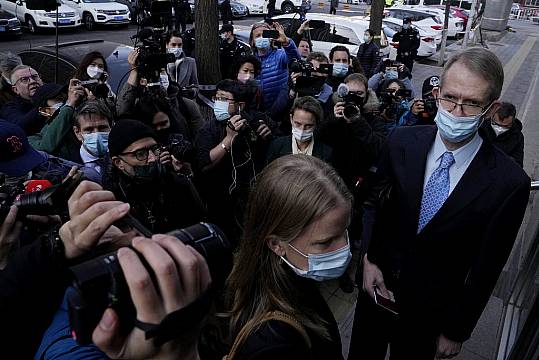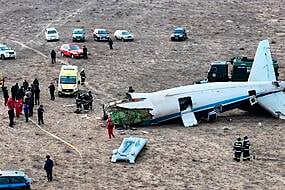Chinese-Australian journalist Cheng Lei has gone on trial in Beijing on espionage charges, with diplomats denied permission to attend the proceedings.
Australian Ambassador Graham Fletcher told reporters outside the Beijing Second Intermediate People’s Court that he was told he could not be present on the grounds that the trial involved state secrets.
“This is deeply concerning, unsatisfactory and very regrettable,” Mr Fletcher said. “We can have no confidence in the validity of the process which is conducted in secret.”
Australia will continue to advocate for Cheng’s rights and interests in accordance with the consular agreement between China and Australia, Mr Fletcher said.
Trials in China are typically completed in one day. Cheng and her defence lawyer were present at the trial and a verdict will be announced at a later date.

“Australian citizen Cheng Lei is suspected of committing the crime of illegally providing state secrets to foreign countries, and the case involves state secrets, so the court held the trial in a closed session in accordance with the law,” Chinese Foreign Ministry spokesperson Wang Wenbin said at a daily ministry briefing.
Australian Foreign Minister Marise Payne said in a statement that while Australia respects the sovereignty of China’s legal system, Ms Cheng’s case has “lacked transparency and the Australian Government has never been provided with details of the charges”.
Ms Cheng’s family said they had been informed of the trial and thanked Australia’s diplomats for their support.
“Her two children and elderly parents miss her immensely and sincerely hope to reunite with her as soon as possible,” they said in a statement.
A former presenter for state-owned China Global Television Network, Ms Cheng has been held for 19 months on suspicion of relaying state secrets abroad.
China has not been specific about the offences Ms Cheng is accused of committing.
“We have no information about the charges or allegations against Ms Cheng,” Mr Fletcher said. “That is part of the reason we are so concerned.”
China’s state security statutes are notoriously vague and the ruling Communist Party is frequently accused of using them to silence political enemies or other critics.
Her trial comes amid prolonged tensions between China and Australia over trade, Chinese foreign policy moves, accusations of Chinese meddling in Australian politics and Australia’s call for a thorough investigation into the origins of the Covid-19 pandemic, which began in China.
Australian diplomats last visited Cheng in detention on March 21 and Fletcher said she appeared to be “doing OK”.
Cheng has been unable to speak with her two sons in Australia, although she has been able to choose her own lawyers and Australian diplomats were “satisfied” regarding her welfare, Mr Fletcher said.







